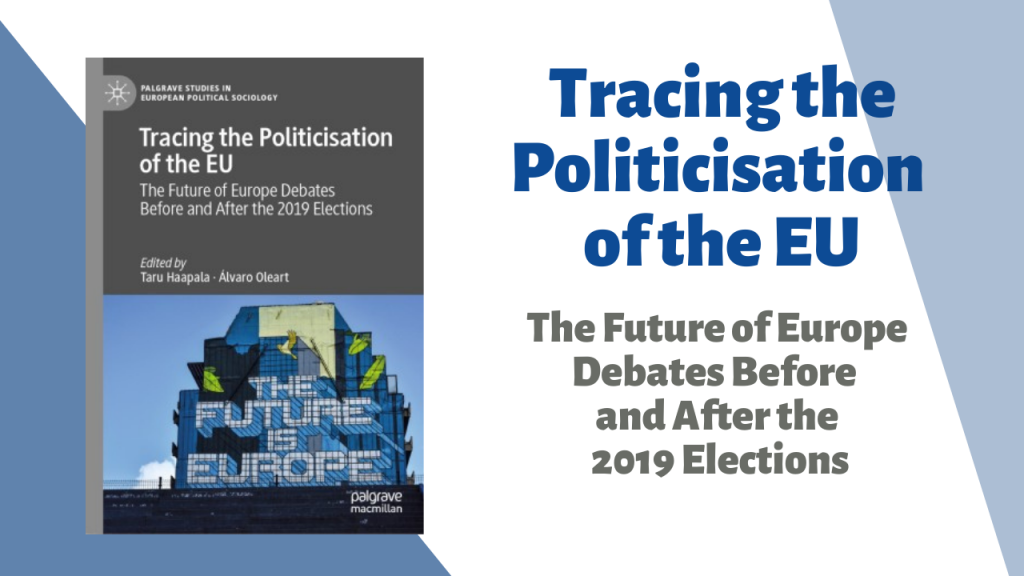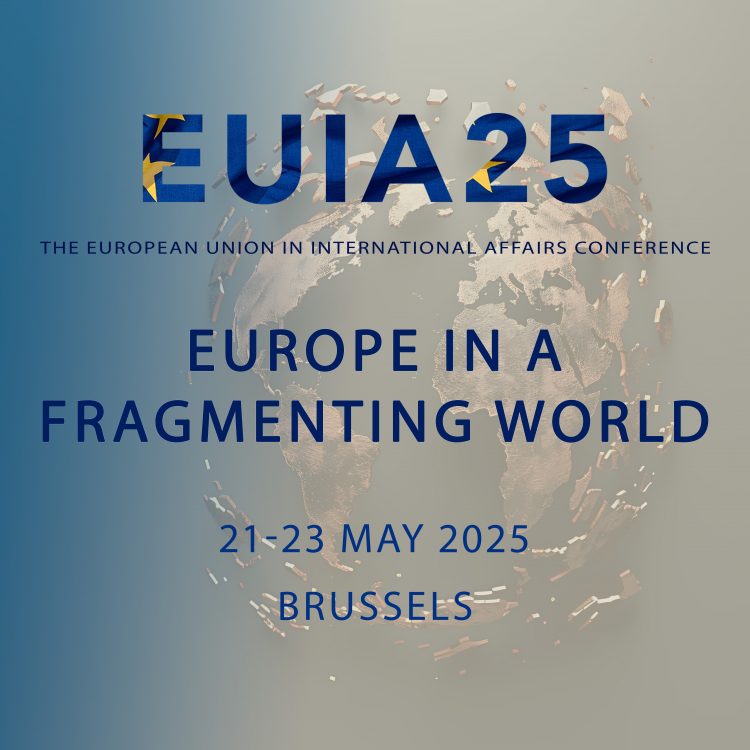Tracing the Politicisation of the EU
The Future of Europe Debates Before and After the 2019 Elections
About “Tracing the politicisation of the EU”
The new book, published by Palgrave Macmillan, presents an innovative and politically aware approach to the concept of politicisation as a heterogeneous phenomenon. It provides wide-ranging insights to inform the debate on EU politicisation and its relation to democracy and transcends the view that politicisation is a “constraining” factor for EU integration to see also empowering elements. It was edited by Taru Haapala and Ávaro Oleart with the support of the Jean Monnet network ‘OpenEUdebate: Matching politics with policy’ (Jean Monnet—Erasmus REF: 600465-EPP-1-2018-1-ES-EPPJMO-NETWORK), coordinated by Elena García-Guitián at the Universidad Autónoma de Madrid (2018– 2022) and of which the IEE-ULB is a partner.
It includes 13 chapters, divided in three sections: Politicisation of the EU as a Polity, Social Media in the Politicisation of the EU and EU Politicisation Narratives and Patterns.
Introduction
Departing from the idea that political controversies are embedded in the very framework of European integration, this volume focuses on the relationship between politicisation and European democracy. The contributors to this edited volume trace the various ways of understanding ‘politicisation’ before and beyond the 2019 European elections. The aim is to offer constructive reinterpretations of the concept for further research in the field. Encompassing different approaches, the book shows a plurality of perspectives and provides innovative analytical tools to make sense of the phenomenon of politicisation in the EU context.
Assuming that EU politicisation can be seen both as vice and virtue depending on the way in which it takes place, the authors analyse under what conditions it has a positive or negative influence over European democracy. Emphasising that scholars ought to be aware of the normative assumptions underlying the conceptualisation of politicisation, the book illustrates how many of the features in European politics that were intensified during the Covid-19 pandemic were already present earlier.
Tracing the Politicisation of the EU will be of interest to students and scholars in EU Studies, Comparative Politics, Media and Communication, Political Theory and Political Sociology.
To purchase Tracing the Politicisation of the EU
Authors affiliated to the IEE-ULB
The book includes a series of chapters by IEE-ULB affiliated academics and researchers:
Patterns of Politicisation in the 2019 European Elections: Salience, Polarisation, and Conflict Over EU Integration in (Eastern/Western) Media Coverage, byAna Andguladze, Jan Beyer, Ramona Coman, Julie Vander Meulen
The European Commission’s Communication Strategy as a Response to Politicisation in Times of EU Contestation, by María-Isabel Soldevila, Julie Vander Meule
Tracing the Politicisation of the EU—A Research Agenda for Exploring the Politicising Strategies in the Future of Europe Debates, by Taru Haapala, Álvaro Oleart, Jan Beyer
The editors
Taru Haapala is a Marie Curie fellow within the MSCA-COFUND InterTalentum programme at the Department of Political Science and International Relations of the Autonomous University of Madrid, Spain, and docent in Political Science at the University of Jyväskylä, Finland. Her publications include Debates, Rhetoric and Political Action: Practices of Textual Interpretation and Analysis (2017).
Alvaro Oleart is a postdoctoral researcher at Studio Europa Maastricht and the Department of Political Science of Maastricht University, Netherlands and a scientific collaborator at the Institute for European Studies of the Université libre de Bruxelles, Belgium. He is the author of Framing TTIP in the European Public Spheres: Towards an Empowering Dissensus for EU Integration (2021).




